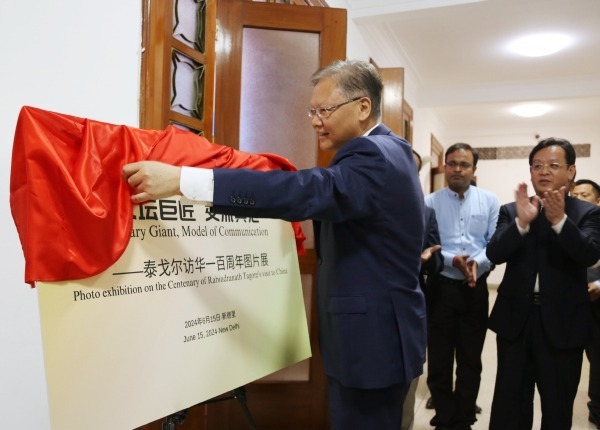
Meanwhile, eminent Chinese monks such as Faxian, Xuanzang and Yijing traveled westward to seek the Dharma. They collected, copied, and translated a large number of Buddhist classics. Along the ancient Silk Road, Chinese paper-making, silk, porcelain and tea were brought to India, and Indian singing, dancing, astronomy, architecture and spices were introduced in China.
The envoy's remarks came amid the awards ceremony for the Chinese language proficiency competition, which tested the ability of participants to use Mandarin in a creative and expressive manner.
Nearly 60 students from 20 Indian universities and middle schools took part in the preliminary round of the competition.
Around 13 students from different Indian universities and middle schools entered the final round, organized by the Chinese embassy in the afternoon on June 15.
After the envoy's speech, there was a talent show where students showcased various skills including trying out tongue twisters in Chinese language, reciting Chinese poetry, singing in Chinese and performing traditional Chinese folk music with a flute. That was followed by the language proficiency awards.
Preetam Rawat, who secured second position in the competition, said the interest he developed in the Chinese language is because of Chinese movies and the language's characters.










